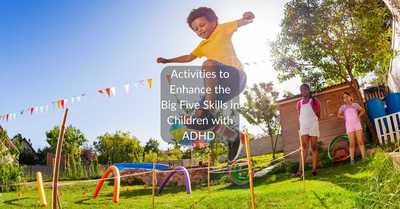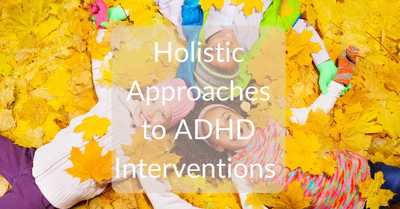.jpg)
As a counsellor deeply committed to supporting children with ADHD, I want to share some invaluable insights from Dr. Lynn Kenney's webinar, which focused on what she termed as 'The Big Five' in ADHD development. These key areas are crucial for understanding and aiding children with ADHD.
Understanding the Big Five in ADHD Development
-
Self-Regulation: This refers to a child's ability to manage emotions and behaviours in response to various situations. Effective self-regulation helps children with ADHD to stay focused, control impulses, and manage emotional responses.
-
Phonemic Awareness: This is the ability to recognize and work with sounds in spoken language. Phonemic awareness is foundational for reading and language skills. For children with ADHD, difficulties in this area can affect their academic progress, especially in reading and writing.
-
Fundamental Movement Skills: These skills include activities like running, jumping, and throwing. They are not only vital for physical development but also play a significant role in cognitive functioning. For children with ADHD, developing these skills can enhance focus, balance, and coordination.
-
Auditory-Visual Integration: This involves the ability to process and integrate what is seen and heard effectively. In children with ADHD, challenges in this area can manifest as difficulties in following instructions, processing information, and learning new skills.
-
Executive Functions: These are high-level cognitive skills used in planning, organizing, strategizing, paying attention to and remembering details, and managing time and space. Children with ADHD often struggle with executive functioning, impacting their academic performance and day-to-day activities.
Why These Matter for Parents
Understanding these five areas can empower you as parents to advocate for your child's needs effectively. Recognizing the signs of struggle in any of these areas allows for early intervention, which is key in managing ADHD. For example, if your child struggles with phonemic awareness, targeted reading interventions can be beneficial. Similarly, if self-regulation is a challenge, behavioural strategies and therapy can help.
How I Can Help
As a counsellor, my role is to work collaboratively with you and your child and potentially your child's teachers to develop strategies and interventions that cater to these specific areas. Together, we can create a supportive environment that not only addresses these challenges but also leverages your child’s strengths.
Remember, every child with ADHD is unique, and understanding these key developmental areas allows us to provide the tailored support they need to thrive.


.jpg)



.jpg)
